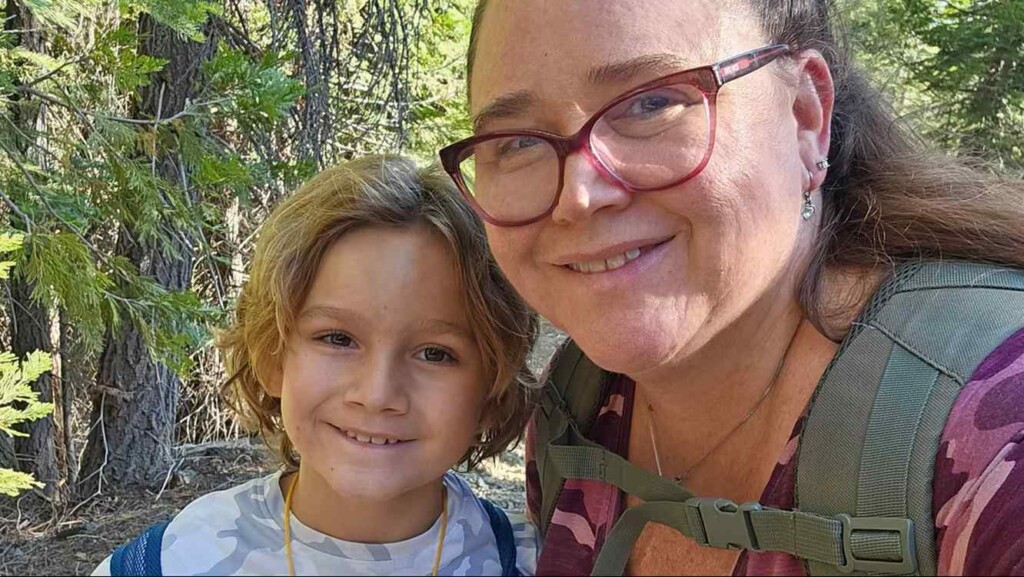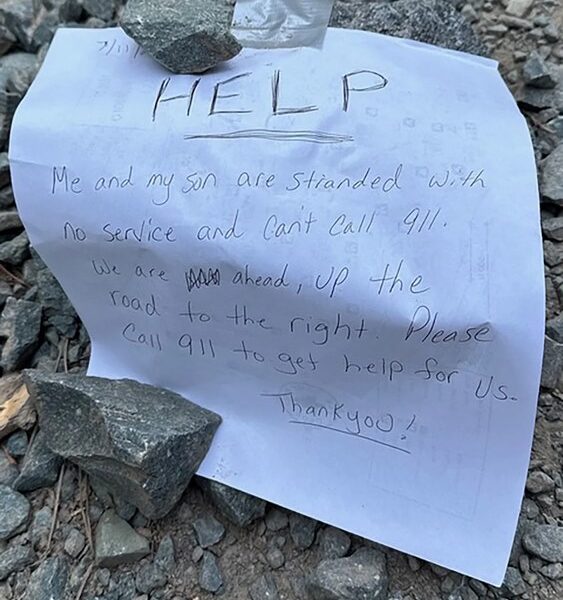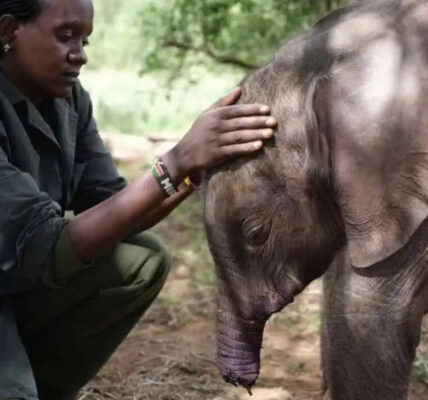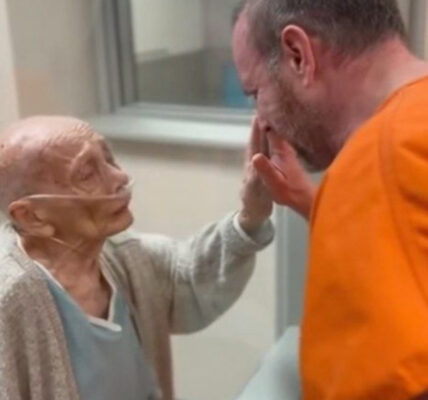
What began as a routine drive to a Boy Scout camp turned into a 48-hour ordeal for a California mother and her son — but thanks to a series of calm, smart decisions, they not only survived but also made it easy for rescuers to find them.
On July 11, Tami Laird and her young son, Stirling, set out from their home in Calaveras County, California, heading toward a Boy Scout camp. The camp director had warned parents about the rough road conditions, so when Laird turned off CA Highway 4 onto a dirt track, guided by her phone’s GPS, it didn’t seem unusual.
But the GPS’s signal struggled in the thick, remote forest. For half an hour they followed its directions deeper into rugged country, only to discover they were still eight miles from camp — and the “road” beneath their tires was quickly deteriorating.
Retracing their route proved impossible. The forest road network twisted into a confusing web of turns, and the family sedan became stuck repeatedly on the uneven ground. After several exhausting attempts to dig it out, the car finally lodged too deeply to move. They were stranded.
Staying Put — and Staying Calm

As the sun dipped below the trees, Laird made her first crucial decision: stay with the vehicle. Night in the forest can be disorienting and dangerous, and venturing out without a plan could easily make things worse.
“It was a long, sleepless, and anxious night for both of us,” Laird later told reporters.
The next morning, with no cell service and a failed 911 call from the day before, she knew they needed a way to draw rescuers in. Wandering too far was risky; the terrain was steep, and the forest was dense. So they hatched a plan to leave a trail of notes for anyone familiar with the area.
Turning Bedsheets into Lifelines
Laird tore strips from a bedsheet, tying them to trees as visual markers, then left handwritten notes at intersections along the roads they had traveled. One read:
“Me and my son are stranded with no service and can’t call 911. We are ahead, up the road to the right.”
Others included her phone number, in case someone passing through found them and could call for help once in range of a signal.
In the summer heat, trekking back and forth to place the notes was exhausting. Stirling began to lose hope, but his mother kept him focused. She suggested they take a break and play cards — a small distraction to ease their growing anxiety.
A Sound They’ll Never Forget
Just as they began to shuffle the deck, a faint but unmistakable sound broke through the stillness: honk-honk. The deep blare of a truck horn. Their hearts leapt. Minutes later, a rescue vehicle emerged from the trees, guided directly to their location by one of Laird’s notes.
“That’s when the tears started,” she told CNN.
The Calaveras County Sheriff’s Office later praised Laird and Stirling for “doing everything right” — staying with the car, marking their route, and leaving clear directions for rescuers. Those simple, methodical steps turned what could have been a dangerous disappearance into a successful rescue.
For Laird, the relief of that honking horn is something she will never forget.
“In that moment, all the fear just melted away,” she said. “We knew we were going home.”




